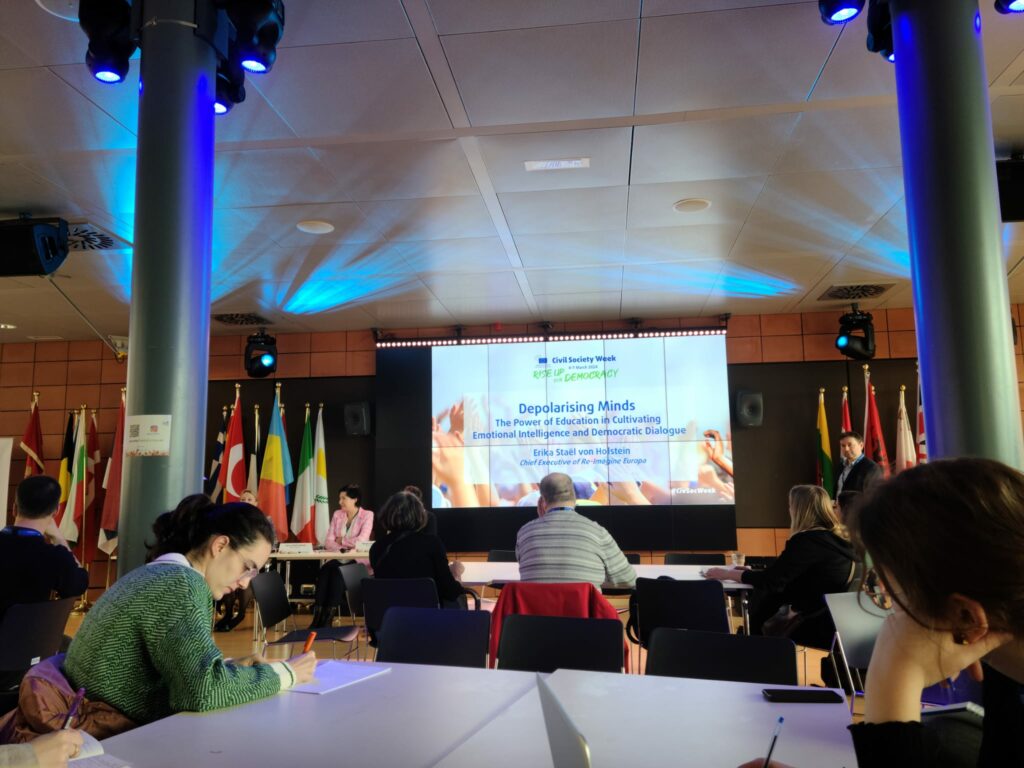Lifelong learning to tackle polarisation
08/03/2024

On March 7, 2024, EARLALL attended the session “Education to tackle polarisation and enhance democracy”, organised during the European Economic and Social Committee’s annual European Civil Society Week, in Brussels.
The session was co-organised by the Lifelong Learning Platform and introduced different approaches to polarisation in classroom settings. The opening speech was help by Ms Tatjana Babrauskiene, EESC member – NAT Section, who highlighted that polarisation in the world, spurred on by global crises, will necessarily enter into classrooms. In this perspective, it is imperative that these spaces are equipped to deal with differing positions.
Next, Maarten Van Alstein, Researcher at Flemish Peace Institute, dived into the nuances of polarisation, and the great challenges it poses for teachers in classrooms. The opportunity is to transform toxic polarisation into democratic disagreement. He introduced the concept of open classrooms – spaces young people can voice their opinions even if different from the rest, and teachers present topics from a variety of points of views. This can enhance critical citizenship in classrooms.
Following this, Erika Stael von Holstein, Chief Executive of Re-Imagine Europa (RIE), looked at education’s core role in building healthy narratives in chimdren, including building responsive listening, eliminating polarising langauyge and focusing on shared objectives.
Finally, Dominic Richardson, Director of Learning for Well-being Institute, discussed how we need to focus on early intervention and building adequate health and family settings before education begins. He proposed that that divides our educational outcomes are family function, poverty, academic ability, housing, disability, gender, race, migrant, home learning and environment. These are all factors that influence children even before they attend education, and hence need to be equalled out to reduce polarisation.
Lifelong Learning and reducing polarisation in education
After the introductory presentations, participants were divided into groups to discuss, “How can we reduce polarisation in education and in our societies with the support of an intergenerational perspective for healthy democracy?”. One proposition related to lifelong learning explored the role of lifelong learning centres where non-formal and informal learning environments and people of all ages come together and foster mutual understanding. Discussions centred around the benefits of intergenerational exchange to question preconceived ideas, informal learning in youth groups and outdoor settings and learning with people of all backgrounds. These experiences help to break down social and intellectual barriers and can foster respectful understanding of one another’s’ views.




